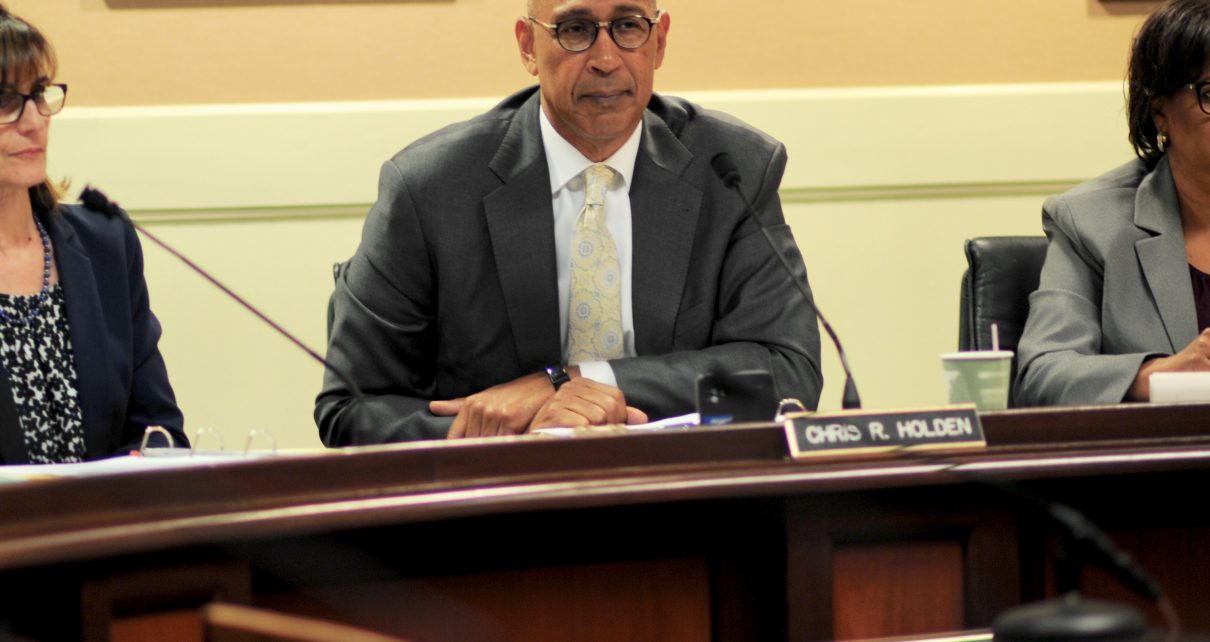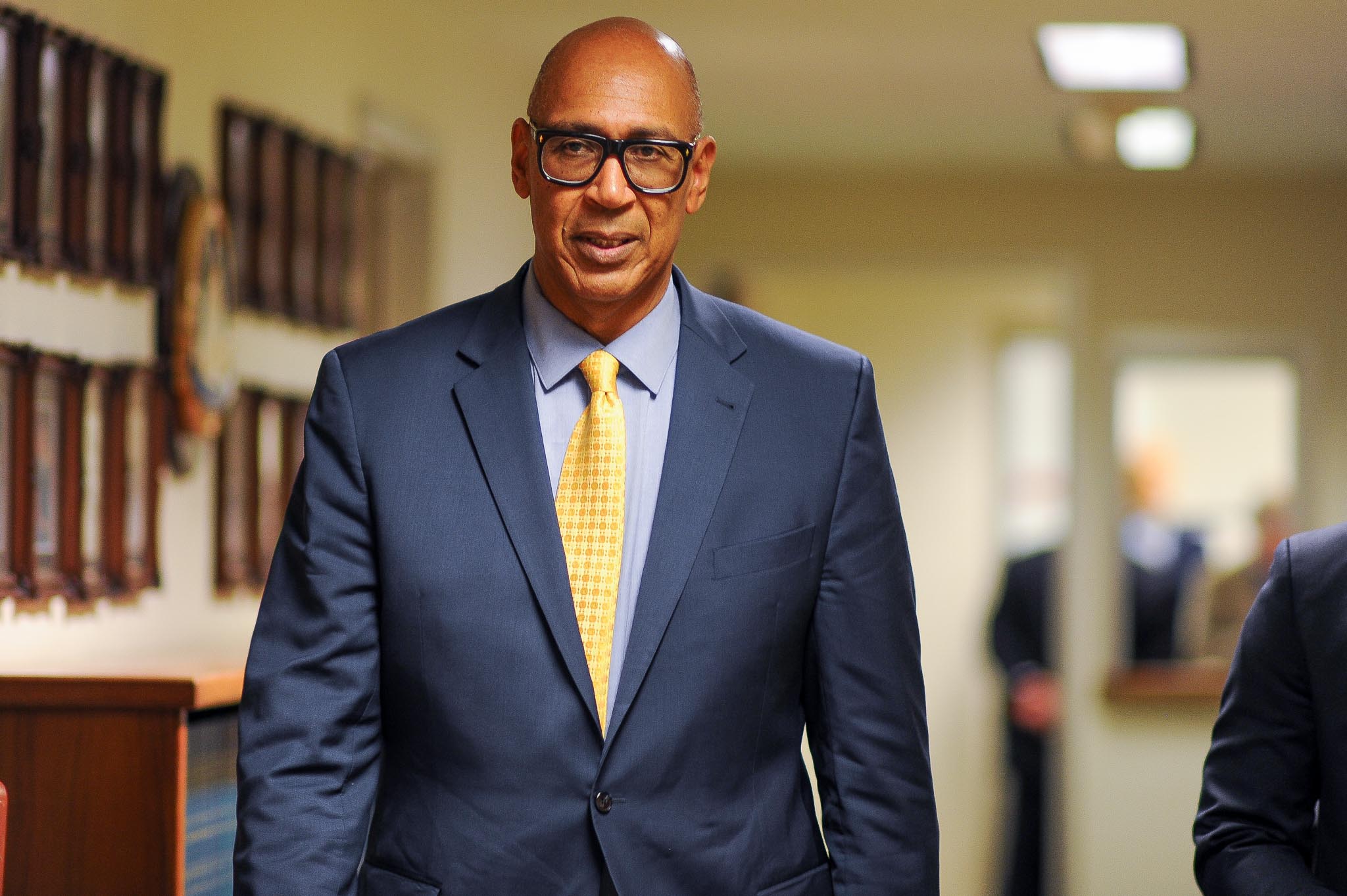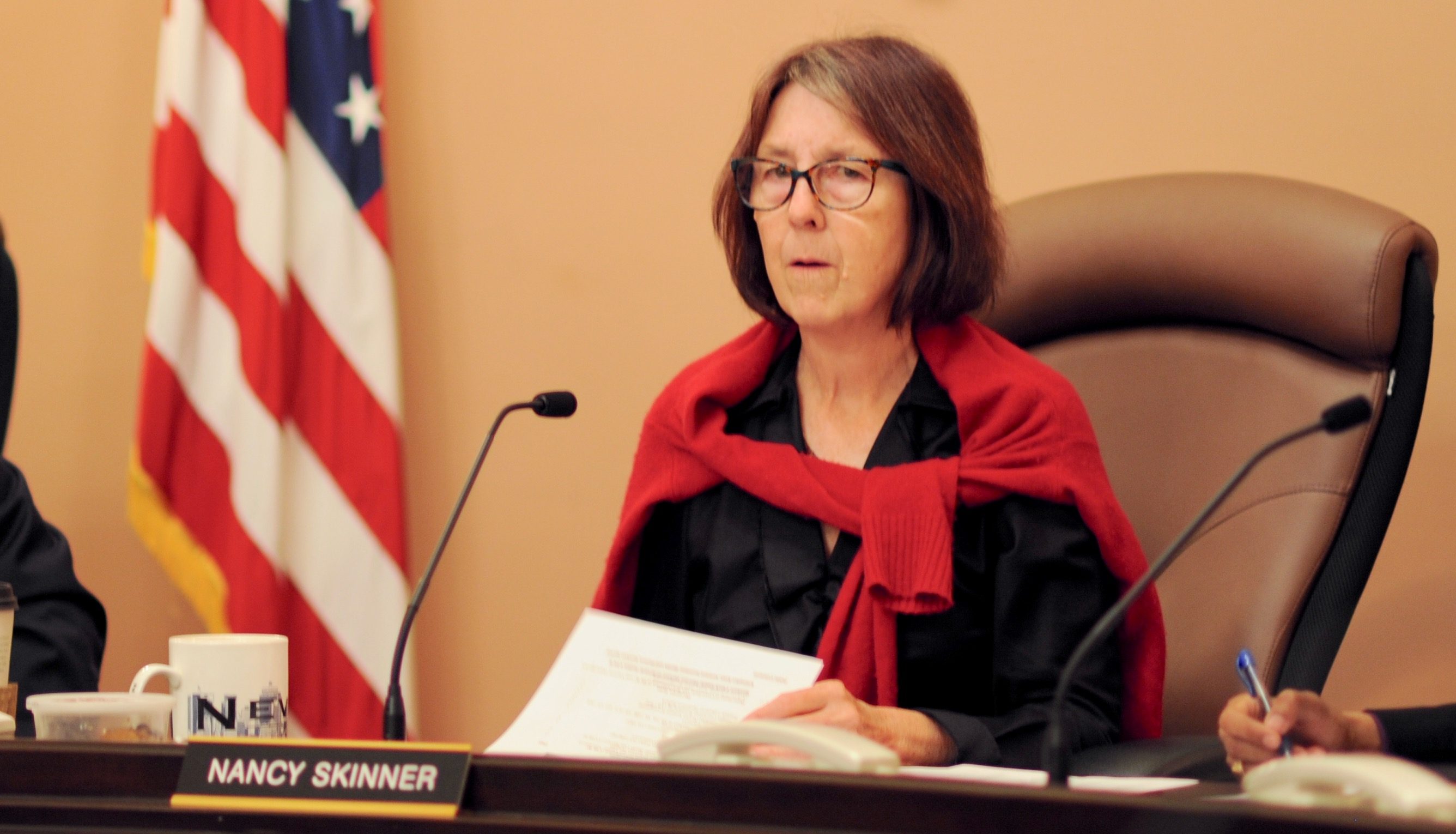
Assemblyman Chris Holden (Kevin Sanders for California Globe)
NCAA Student Athlete Revenue Sharing Bill Passes to Senate
AB 252 passed the Assembly with a 42-15 and 23 abstention vote
By Evan Symon, June 6, 2023 12:01 pm
A bill to expand NCAA paid athlete rules to allow for degree completion funds for major sport athletes and covering more student expenses was moved to the Senate following passage in the Assembly last week.
Assembly Bill 252 by Assemblyman Chris Holden (D-Pasadena), would establish the College Athlete Protection (CAP) Act, requiring universities to install a University completion fund for college athletes. The bill would specifically target sports that athletes usually don’t receive funds through the Fair Pay to Play Act, which gives students money upon leaving or graduating for having their likeness being used in advertising or other areas that the school makes a profit on, such as football and basketball.
The CAP Act would set a maximum of $25,000 to be payed to all major sport athletes at colleges in degree completion funds, with up to 50% of all athletics revenue to go to these students. Normally awarded scholarship funds can go towards the 50% mark, but funds are to be geared towards undervalued athletes with scholarships that don’t match their market value. The funds would then be given to the student upon either completion of a Bachelor’s degree, or getting an injury that prevents them from getting a degree. Students who transfer to another school are to be paid when they get their Bachelor’s degree from that transferred-to college.
Payments would be capped at $25,000 a year, with guaranteed athletic scholarships and post-college medical expenses to be paid for by the college. However, if the athlete does not complete a Bachelors degree within 6 years and does not have a medical reason for not completing it, all degree completion fund payments would be forfeited. No money would be paid up front, with money only going out as soon as the athletes graduate or have to medically leave.
According to AB 252, This bill would also “establish the College Athlete Protection (CAP) Program as a program in the State Department of Education for purposes of the CAP Act. The bill would establish a 21-member CAP Panel comprised of appointed individuals to serve on 4 CAP Subpanels, as specified, for the administration of the CAP Act, as provided.”
The bill, widely seen as an expansion of 2019’s SB 206, which allowed NCAA athletes to receive money from endorsement and sponsorship deals, was first introduced in January. AB 252 quickly turned out to be one of the more controversial bills of the session, as both the University of California and California State University systems quickly came out against it. While supporters say that it benefits student athletes, detractors called the bill out for harming athletic programs that aren’t profit-driven and would likely lead to the demise of all sports not generating a revenue for the college, potentially violating Title IX, which protects against sexual discrimination.
“Since a lot more men’s athletic programs make money for colleges than women’s programs, AB 252 could put a lot of women’s programs into jeopardy,” college athletic advisor Will Sherman, told the Globe Tuesday. “Even with recent amendments to that California bill, it would still brush up against Title IX. It’s no wonder so many lawmakers have been going against it.”
A growing number of legislators voting against, abstaining against AB 252
Every vote to date has brought out a growing number of lawmakers opposed to the bill given its controversy. In the Assembly Higher Education Committee vote in April, AB 252 passed 8-3 with one abstention. During the Appropriations Committee vote last month, it came down to a 11-3 vote with 2 abstentions. And finally, this month’s full Assembly vote was 42-15 with a large 23 abstention vote bloc.
“As a former college athlete, I know all too well the toll that it can take on a person’s physical, mental, and financial well-being,” said Holden following the passage in the Assembly in a statement. “At some point we have to recognize that what’s demanded of these athletes far exceeds what the average student is expected to contribute. We owe it to these young people to put protections in place that match the unique position they are in and set them up for success post schooling.”
“These athletes are not commodities. They are our young people, our next greatest talents, and future leaders. It’s time we raise the standards and treat them accordingly.”
While it did pass, the narrow margin of yea votes over the combined no/abstention votes has many experts believing that the Senate vote, which usually skewers towards ‘nay’ votes on more controversial bills, could stop the bill this year.
“We were disappointed with it being passed in the Assembly, but a lot of people we know in Sacramento have told us that the Senate vote could be different,” said Oscar Jansen, a former scout and recruiter for several universities. “There are just too many questions around this bill right now. It’s good not to screw over athletes who were hurt, but this bill would really hurt the Universities themselves and bring some difficult choices. A lot of women’s athletics programs would be thrown up into the air too. There’s good intention behind the bill, but right now, this isn’t the way to go about it. And more and more lawmakers opposing the bill or at least abstaining from voting should be a pretty clear hint on where this bill is heading.”
Voting in the Senate is expected to begin at the Committee level soon.
- Bill to Require Law Enforcement Disclosure if AI Was Used To Help Write Reports - August 7, 2025
- Gov. Newsom Files FOIA Request To ‘Expose True Cost’ Of L.A. Federal Troop Deployment for Anti-ICE Riots - August 6, 2025
- California Redistricting: How Newsom’s Plan Will Demolish Hard Fought GOP Gains - August 6, 2025




Democrats solve another non-problem and create more problems in the process!! Then they’ll come to the rescue with solutions to solve the problems they created. They’re like locusts flying in to help you with your garden!